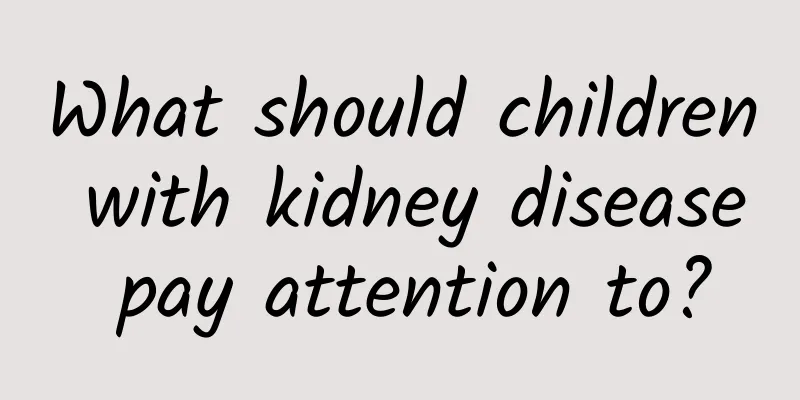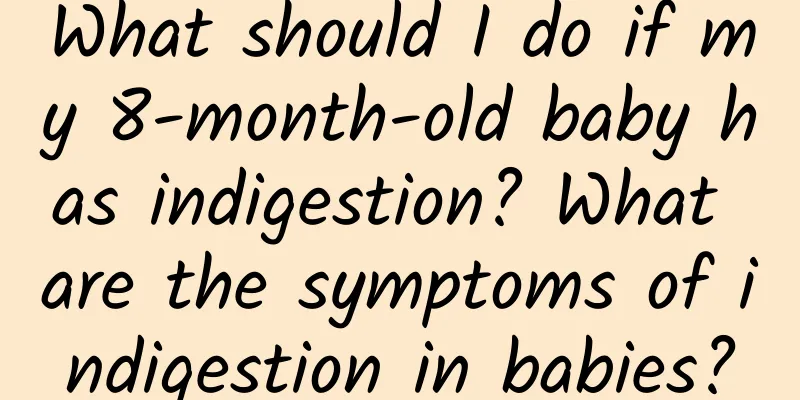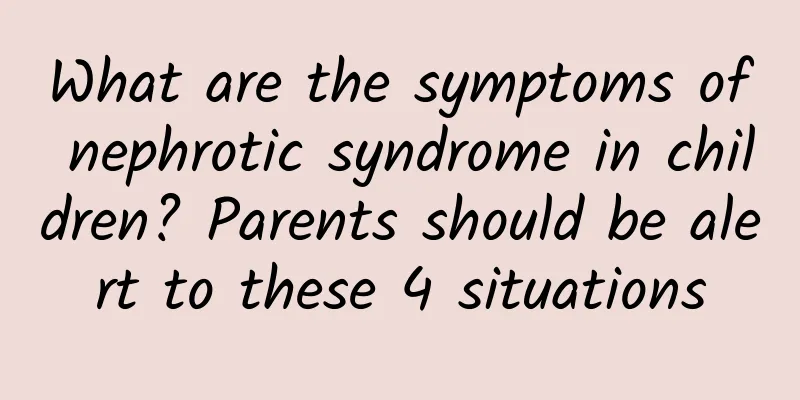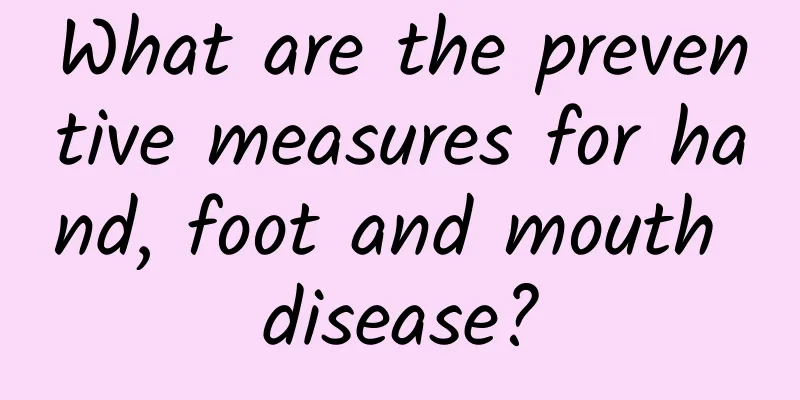What should children with kidney disease pay attention to?

|
Pediatric nephritis is one of the most common diseases in children. While using medication for treatment, parents should also pay special attention to some living habits and eating habits. When children suffer from nephritis, special attention must be paid to controlling the amount of salt, so as to better control the disease and avoid the deterioration of nephritis. So what matters should children with kidney disease pay attention to? The following contents can give parents some guidance. In acute nephritis, it is often recommended to control the amount of sodium salt entering the body. This is because in nephritis, the kidney's sodium excretion function is abnormal and the glomerular filtration rate is poor. After sodium salt enters the body, it is not easily excreted and is retained, causing edema. In addition, during nephritis, aldosterone secretion is high, and the renal tubules excrete potassium and retain sodium, which promotes water and sodium retention. When salt enters the body and is absorbed into the blood, it not only increases the burden on the kidneys, but also makes the plasma osmotic pressure higher. High osmotic pressure means strong water absorption, increased blood volume, and increased burden on the heart. Sodium ions can penetrate the capillary wall into the tissue, increasing the osmotic pressure of the tissue fluid, and part of the water is transferred to the tissue. The water in the interstitial space increases, aggravating edema. Therefore, salt should be avoided in cases of nephritis, but it should be noted that long-term salt avoidance not only affects appetite, but also does not help the recovery of kidney disease. It is harmful to the overall health of growing and developing children and may even cause hyponatremia syndrome. Children with acute nephritis should also avoid salt when they have heart failure, hypertension, edema, and oliguria to prevent increased blood volume, high blood pressure, and aggravated edema. When edema subsides, urine volume returns to normal, and blood pressure returns to normal, they can start a low-salt diet, no more than 2 grams per day, and continue to observe. If the condition improves day by day, they can gradually transition to a normal diet. When nephritis causes severe edema, significant hypertension, significantly reduced urine volume, or heart involvement, in addition to avoiding salt, the protein and fluid intake should be limited according to the condition, and the diet should be mainly composed of sugars and fats. In short, children are active and lively, and their bodies excrete quickly, so they prefer foods with stronger flavors. So as parents, we must help children keep a close eye on them and give them a scientific diet. Reasonably control the salt intake to avoid worsening the child's condition. It is not conducive to the treatment of nephritis. |
<<: Complications of childhood kidney disease
>>: Kidney disease treatment drugs for children
Recommend
How to treat a child who coughs and spits white foamy sputum?
If a child coughs and spit out white foamy sputum...
What causes Kawasaki disease in children?
Kawasaki disease in children is mainly caused by ...
What causes diarrhea in children?
Many parents have a question: they take good care...
How long does it take for neonatal jaundice to subside?
Neonatal jaundice usually resolves naturally with...
Is acute icteric hepatitis serious? You should know the hazards of acute icteric hepatitis
Whether acute icteric hepatitis is serious depend...
What are the diagnostic methods for diarrhea in children?
What are the differential diagnosis methods for d...
Can children with pneumonia develop leukemia?
Can children with pneumonia develop leukemia? Chi...
What are the recipes for children with kidney disease?
Correctly and reasonably arranging the daily diet...
What medicine is effective for neonatal jaundice?
Neonatal jaundice usually requires targeted treat...
What should I do if my child has diarrhea and then coughs?
Children who have diarrhea and then cough may be ...
What are the causes of hepatic osteodystrophy?
What are the causes of hepatic osteodystrophy? 1....
Can children's cough be treated with massage? What are the basic massage treatments for children's cough?
There are many massage methods for children's...
What causes children to cough frequently? Children who cough frequently are likely to have these four reasons.
In daily life, children often cough. There are ma...
What should I do if my eight-month-old baby has water in his stool?
If your baby has watery stools in the fall, it is...
The four stages of pneumonia in children and their medication
Pediatric pneumonia can be divided into the conge...









